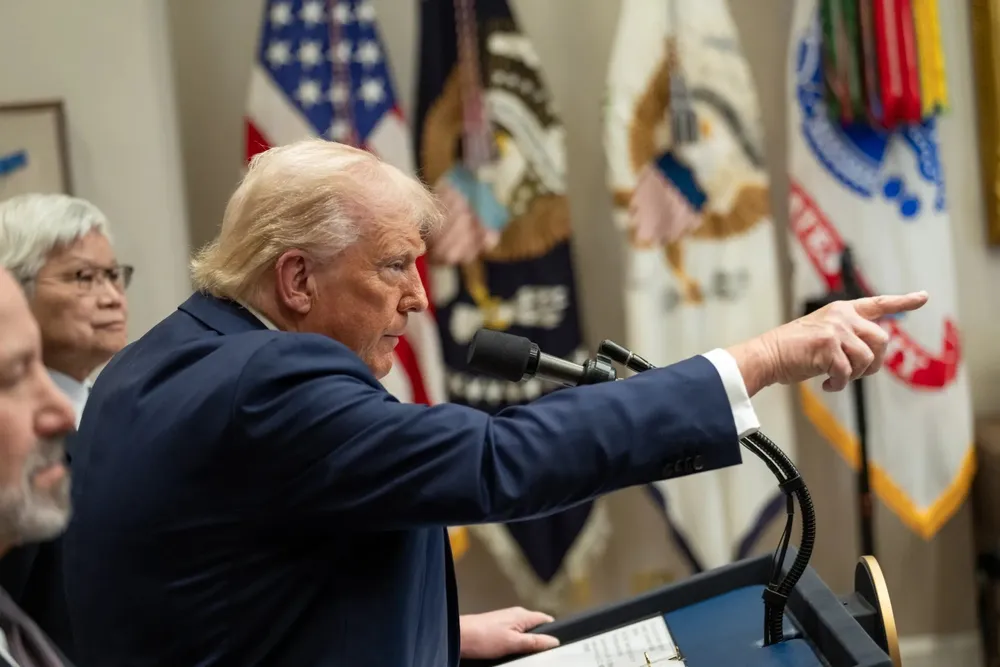As Empire reels, wind barred from plan to shield US energy projects from political wrecking balls
Measure in tax bill to compensate investors for losses by 'subsequent federal actions' currently geared up for fossil sectors and may not even be effective, say experts

When US authorities in April ordered a halt to work on Equinor's Empire Wind project as part of Donald Trump's anti-offshore wind agenda, the backlash was stinging.
As the Norwegian group contemplates legal action, others wonder what could be done to protect expensive energy projects from presidential interference.
In fact, just such an initiative is already under discussion in Congress – but offshore wind and other renewable are markedly left out in the cold under proposals that firmly reflect Trump's own priorities and are designed to protect fossil fuel investors against future 'left liberal' administrations.
However, the proposed facility would only be available to investors in “energy projects relating to coal, critical minerals, oil, natural gas, or nuclear energy.”
Would the proposal work – now or in the future?
Andrew Levine, co-chair of environmental practice at Philadelphia-based law firm Stradley, Ronon, Stevens & Young, downplayed the measure’s exclusion of renewables, noting that future Congresses could simply amend it to include renewables.
Either way, “you've added an entirely new level of government liability that didn't exist before,” he said, which will do little to actually ensure that projects don’t get killed, “it just creates the price tag for it”.
If passed in the ongoing budget reconciliation process, the programme would entitle participating fossil fuel energy and mining projects to compensation from the Department of Energy for “unrecoverable losses due to subsequent federal actions”.
The programme would give energy developers more certainty, “there's no question about that, to the level of protection they do not currently have,” said Levine.
Political risk not new in US energy
Signe Sørensen, senior market analyst with offshore wind intelligence firm Aegir Insights, said that political risk in US infrastructure development was always significant but has “reached a new, new high with this Trump 2.0 presidency”.
In a move later emulated by Trump against offshore wind, Biden on his first day in office in 2021 revoked the Presidential permit for the Keystone XL pipeline that was to have delivered oil from Canada’s Albertan oil sands, effectively killing the project.
At the time of cancellation, the pipeline had received several key federal and state permits and had already begun construction in Montana and Canada. Its Canadian owner TC Energy had reportedly spent $8bn on the long-running and controversial project.
Biden also cancelled federally approved offshore oil and gas lease sales and discontinued applications for LNG terminals.
“Certainly, you can point to both Republicans and Democratic administrations that have introduced this policy uncertainty,” said Greg Upton, president-elect of the US Association of Energy Economists and head of LSU’s Centre for Energy Studies.
Fossil and green sectors united
Political risk is a rare issue that unites fossil fuel and renewables sectors.
“This overall environment where permitting discussions are being driven by politics, is pretty concerning [and] it's gotten worse,” said Alexander Stevens, head of policy and communications for conservative think-tank Institute for Energy Research (IER).
“For a long time, they've targeted oil and gas with much stricter scrutiny in the permitting process than some of these other projects,” he said.
“And now you're seeing the Trump administration sort of doing the same thing the other direction with wind,” he continued, adding: It’s “a very negative development for the regulatory system.”
Trump and Burgum had teased a project insurance programme in speeches in recent weeks.
More recently, Burgum told a conference that the National Energy Dominance Committee he heads was working on a plan for “sovereign risk insurance — not against a foreign country but against our own.
Washington, DC-based National Taxpayers Union called the cancellation of both fossil or renewable energy projects “unwise” but added, “it is similarly misguided to have the government run such a fund for fossil fuel programmes”. It recommended that businesses look to the private sector for insurance guarantees.
IER’s Stevens added that “proving an unrecoverable loss could mean a legal battle that drags on for years.
“From a business perspective, any potential recovery that far off is essentially worthless,” he added.
“The prospect of potentially getting some money back eventually isn’t going to convince investors to tie up hundreds of millions – or billions – on something with no clear path to completion,” he said.
Instead, “the real solution is to fix the permitting process so there's less room for federal interference and delays,” he said.
(Copyright)